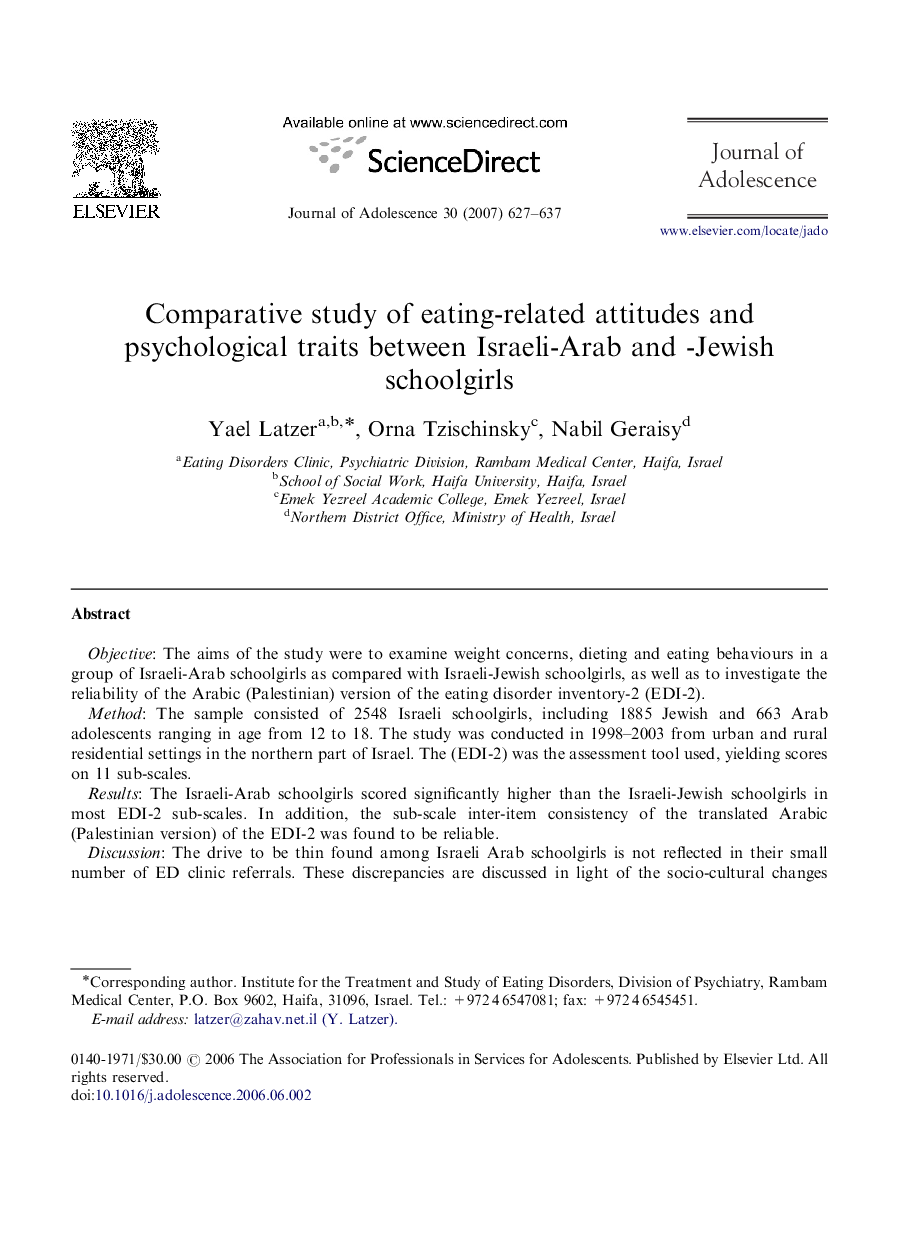| Article ID | Journal | Published Year | Pages | File Type |
|---|---|---|---|---|
| 881382 | Journal of Adolescence | 2007 | 11 Pages |
Objective: The aims of the study were to examine weight concerns, dieting and eating behaviours in a group of Israeli-Arab schoolgirls as compared with Israeli-Jewish schoolgirls, as well as to investigate the reliability of the Arabic (Palestinian) version of the eating disorder inventory-2 (EDI-2).Method: The sample consisted of 2548 Israeli schoolgirls, including 1885 Jewish and 663 Arab adolescents ranging in age from 12 to 18. The study was conducted in 1998–2003 from urban and rural residential settings in the northern part of Israel. The (EDI-2) was the assessment tool used, yielding scores on 11 sub-scales.Results: The Israeli-Arab schoolgirls scored significantly higher than the Israeli-Jewish schoolgirls in most EDI-2 sub-scales. In addition, the sub-scale inter-item consistency of the translated Arabic (Palestinian version) of the EDI-2 was found to be reliable.Discussion: The drive to be thin found among Israeli Arab schoolgirls is not reflected in their small number of ED clinic referrals. These discrepancies are discussed in light of the socio-cultural changes currently taking place in the Israeli Arab population due to the influence of Western-oriented life in Israel.
